- Home
- Christie Golden
Shadow of Heaven Page 11
Shadow of Heaven Read online
Page 11
“I understood,” said Chakotay. “You think it’s a necessary precaution. Every culture has its ways and traditions.” Like the Culilann, he thought, his own choice of words vividly recalling images and faces. He glanced down at the young man walking beside him as they traveled through the labyrinth of dark corridors. Ezbai seemed a little scattered, but sincere. Unlike the Implementer, Ezbai struck Chakotay as someone he could talk to.
“Tell me how the Culilann and the Alilann came to be so separate,” he asked, and Ezbai did. He spoke of an ancient people who were nearly decimated by beings from another world, and how there had been two reactions to the disaster. One branch felt that it was divine punishment for forsaking the ways of the ancestors. Their response was to renew their dedication to the old ways. They became the Culilann, the “seekers of things of the world.” Another group wished never to be vulnerable to such attacks again, and redoubled their efforts to advance their technology. Thus were born the Alilann, the “seekers of things unmade.” Both of them showed how deeply the alien attack had scarred them, despite their naturally friendly natures. The Culilann had the Ordeal, and the Alilann had their truth-tester and array of defensive weapons. They were more alike than they wanted to think, and this division both saddened and angered Chakotay.
And now there was evidence of murder prompted by this division. He almost wished he hadn’t come bringing the news of the mutated dark matter. The Implementer, rather than face the unpleasant reality that someone among the Alilann was taking intolerance to a new and violent level, had latched on to the dark matter as a perfect scapegoat. Chakotay had a bad feeling that things were going to get worse before they got better.
“So Ezbai, do you personally disapprove of the Culilann’s way of life?”
“Of course!” he replied, and inwardly Chakotay flinched. Ezbai said it with pride, as if it was the only right way to feel. “I know how they treat Strangers, and their own malformed children. I know that many of them die from injuries or illnesses that could be cured in a matter of seconds if they’d only let us help them. I know they spend their days wasting their time doing useless things, like making pots and weaving blankets.”
“Pots to hold food,” Chakotay said gently as they stepped into a turbolift. “Blankets to please the eye even as they cover a sick person.”
Ezbai looked at him with pity. “It seems we Recovered you just in time. This happens, sometimes. The aliens live too long among the Culilann. They don’t recognize the foolishness of their ways.”
“When there was the division between the Culilann and the Alilann,” said Chakotay, “who left whom? Did the Culilann originate in the jungles of this planet?”
“Well, no,” said Ezbai. “We lived all over the face of the planet. There are temperate regions as well as tropical. We have polar ice caps as well.”
A terrible suspicion began to occur to Chakotay. He chose his words carefully. Whatever happened, it certainly hadn’t been Ezbai’s fault. The division had occurred hundreds of years ago. Although perhaps the young Interceptor was at least partially responsible for maintaining the situation.
“Are there still Culilann villages located all over the planet?” he inquired.
The turbolift stopped and they exited. Ezbai led him down yet another corridor that looked exactly like any one of a dozen they had already negotiated.
“Well, not really. They live mostly in the deserts, the ice caps, and along the equator. We have our domed cities in the more temperate areas. This is actually something of a far-flung outpost. We’re roughing it here. Thanks to transporter technology, though, nothing’s really remote anymore.”
“Why do you think someone wants to kill the Culils?” Chakotay asked, abruptly changing the topic.
Ezbai blinked, startled by the bluntness of the question. “Why, you yourself provided the explanation, Chakotay. It’s the dark matter.”
“You don’t think,” said Chakotay slowly, turning to look at Ezbai as they walked, “that perhaps this separateness between your people might have caused some hatred? Has there never been a Culilann uprising, or an attempt to eliminate a village?”
“Well,” stammered Ezbai, “of course, but—well, we don’t like to talk about that much. I mean, of course the Culils—the smarter ones among them anyway, the ones intelligent enough to realize what they’re missing—of course they resent us. Not that we don’t stand ready to welcome any of them who want to join us.”
“Really?” Chakotay continued to gaze steadily at Ezbai. “Do you really welcome them, as Culilann? Or do you insist that they abandon everything that makes them who they are and embrace only what your culture tells them is right? If a Culilann showed up right here, right now, and wanted to learn Alilann ways, would you let him have a garden?”
“Of course not! What a waste of resources!”
“Or paint. Suppose he said, ‘I want to paint a scene of my village’s life on this wall.’ What would you do?”
“Chakotay, this argument makes no sense!” said Ezbai, and by that Chakotay had his answer. It made him even sadder. He said nothing more and they continued on in awkward silence.
Finally, they reached the medical center. This, too, required negotiating, but after what seemed like an eternity Chakotay was checked in and lying on a diagnostic bed in a large room in which a great deal of activity seemed to be occurring. The light was bright, comparable to sunlight, and the tools, trays, and furnishings sparkled. All spoke of cleanliness and efficiency, of clinical detachment and coldness. And Chakotay thought of the warm affection and nurturing atmosphere of Soliss’s hut, and found himself missing it.
“I’ll be by to pick you up and escort you back to your quarters when you’re done here,” said Ezbai, not meeting Chakotay’s eyes. He hastened off. Chakotay realized that their conversation had upset the young Interceptor. He regretted the necessity that had driven him to it, but was not sorry he had pushed Ezbai to really look hard at his culture. Everyone needed to do that from time to time.
“Sector?” said the doctor in a flat, bored voice. He picked up a padd and began to peruse it. He hadn’t even introduced himself.
“I’m not sure,” said Chakotay. “I was Recovered from the village of Sumar-ka, if that helps.”
“It doesn’t,” replied the doctor, sounding as if he wished he were anywhere but here. “Ah, here it is. All right. Male, species called human, no known illnesses, recovering from that barbaric Ordeal they always put aliens through. We’re going to do a full examination on you, standard procedure.” He shot Chakotay a look. “You haven’t had anything to eat or drink since retiring last night, have you?” The question was almost an accusation.
“Not a thing,” Chakotay replied. He was itching to get out of here. He wondered how anyone who was actually ill recovered in a place like this.
“Good.” Without wasting breath on further conversation, the doctor and a bevy of assistants began poking and prodding Chakotay. They ran instruments over him which hummed, whistled, and beeped, took samples, and rushed through the examination with efficiency and detachment. Chakotay was hard-pressed to recall a time when he felt less like a living, sentient being. Once or twice he tried to make conversation, but it was answered so brusquely that he gave it up as a bad idea.
Then, all at once, the doctor stopped dead in his tracks. His blue eyes widened and he leaned against the chair for support. “This can’t be,” he breathed. “It just can’t!”
“What—”
But before Chakotay could even finish the question the doctor had rushed off. Chakotay sat up on the biobed, startled by the outburst and a lack of explanation. Though he was in a huge room with dozens of people, no one responded when he asked for assistance. So he sat, and waited, and wondered what the unnamed doctor had found.
Probably the dark matter, he thought. They wouldn’t know what it was, and he supposed it had been foolish of him to think the Implementer had already gotten around to informing his people of the problem. Though
it would have saved them time and effort if he had. This was a society that was drowning in its bureaucracy, and Chakotay wondered if his request to search for Voyager would even be acknowledged unless it was submitted in triplicate, with the proper footnotes and addressed to just the right people.
Something stirred beneath the bed. Frowning, Chakotay bent over and peered beneath the metal frame.
Crouched underneath, his tail wagging and his pink tongue lolling, was Coyote.
Chakotay gasped and sat back up. He closed his eyes, calmed himself, and again looked under the bed. Nothing. He realized he was shaking. Something must be going wrong if he was starting to see Coyote with his waking eyes.
Finally the doctor returned. With him, their gazes impersonal and yet intimidating, were three guards. “I have just spoken with the Implementer,” said the doctor. “He insists on seeing you immediately.”
“If you’ll just tell me what’s going on, perhaps I can help you with your diagnosis.”
But the doctor was not interested, and was already moving on to another bed, another body to treat as if it were devoid of personality.
“Please come with us,” said one of the guards in the same flat voice the doctor had first used. Chakotay sighed and surrendered to the irritating absurdity of the situation. A situation that clearly delighted Coyote.
* * *
He found himself in the same room he had visited last night, but now the Implementer and Ezbai were the only ones present. The Implementer’s face was unreadable as he gestured for Chakotay to have a seat. With a wave of a hand, he dismissed the guards.
“We have to stop meeting like this,” said Chakotay. Ezbai and the Implementer exchanged glances, not getting the ancient joke. “Sorry. A bit of human humor.”
“There’s nothing funny about why I asked you here.” The Implementer jerked his head in Ezbai’s direction. Belatedly Chakotay realized that Ezbai looked awful. He was pale and seemed to be fighting to control terror and tears. “I asked Interceptor Ezbai to join us because I believe this affects him as well.”
The doors opened and the doctor who had examined Chakotay entered and took a seat. He looked anxious and out of breath and clutched a small padd in a tight grip.
“I’ll come straight to the point,” the Implementer continued. “There’s something wrong with you, Chakotay.”
“Let me guess,” said Chakotay. “There’s a peculiar substance in my body that you can’t identify, and it’s growing at an exponential rate. It’s targeting some specific system—the adrenal system, or the brain, or the pulmonary system.” He sat back, crossed his arms, and waited for them to verify what he had said.
“No,” said the doctor, whose name Chakotay never had learned. “It’s something much stranger. Commander Chakotay, your DNA sequencing is all backward. Strand by strand, it is precisely the opposite of ours.”
Chakotay felt a chill run down his spine. A memory stirred. Hadn’t the Doctor spoken about something like this with Khala? He hadn’t gone into detail, but he had said something about how the tricorder must have been damaged by the dark matter to give such backward readings. But apparently the tricorder had been operating perfectly.
“When we found Khala,” Chakotay said slowly, “our doctor noticed something amiss with her as well. Something similar. I don’t remember the details, and then the passage opened.”
“The same passage which you said my sister claimed she stepped through,” said Ezbai. “I remember. I saw it. White light appearing, engulfing her, then disappearing—taking her with it.”
“Logic would indicate that something took you from your world and Khala from ours,” said the Implementer.
“I thought we had already determined that,” said Chakotay.
“But there’s more,” said the doctor. “Something is happening to you. It’s slow, but it’s certain. Various cells in your body are simply disappearing.”
Chakotay remembered the Romulan scouts, lying in sickbay in terrible pain as parts of their bodies disappeared and reappeared. The Doctor had no idea where those parts went to when they vanished. Now, the same thing was happening to him, cell by cell.
“It’s the dark matter. It’s got to be. We saw something similar to this on the ship.”
The doctor was clearly getting irritated with Chakotay’s insistence on the dark matter being the culprit. “No, Commander, there is no trace of anything like that in your system at all. There is no foreign agent. This is a natural occurrence. And I would imagine that the same thing is happening to Khala.”
“Natural?” cried Chakotay. “How can you say that my cells disappearing one by one is natural?”
“Because,” said the Implementer, “your body is returning home. Piece by piece, to where it truly belongs. According to Dr. Reksis, you are not from this universe.”
In his mind, even as he stared at the Implementer, Chakotay heard Coyote, the Trickster, laughing.
* * *
The rain fell in sheets. Ioni and her companions were drenched, and had been for some time. Nonetheless, they slogged on determinedly. There was something important waiting for them at the end of their quest.
It was in the large, hollowed center of an ancient, fallen tree. This village had a sacred tree instead of a sacred mountain. As always, the anger rose inside Ioni as she beheld the helpless infant. Kaminor reached and picked it up. She couldn’t even see what was wrong with this one until her Recovery team leader held it up, to get a full view. A twining birthmark. To superstitious eyes, it could resemble a snake. Therefore, the poor infant must be cursed. Alilann doctors wouldn’t even bother treating this one. There was nothing wrong with it.
“Hush, little one,” soothed Shamraa Kaminor, his big, powerful body at odds with the soft voice and gentle handling of the child. “You’ll be in loving arms soon.”
“Blasphemy!”
The team whirled to behold a young woman. She was crying, but outrage shone on her wet face. “You blaspheme the Crafters by stealing the child that they have marked for their own!” The woman, probably the baby’s mother, stooped to pick up a stone.
For a moment, they all stood still. This had never before happened to a Recovery team. They had gotten careless, failed to monitor their instruments to see if there were any Culilann lurking nearby. Sometimes that happened. Sometimes someone, usually the parents, wanted to behold with their own eyes the Crafters taking their child. All that could be done in such situations was wait and hope the parents would grow weary of their vigil. Sometimes, and Ioni had seen it happen, the child had died before the parents left. Ioni wondered what the Culil of the village told a distraught mother at such times.
The woman pulled back her arm to fling the stone, and Ioni’s weapon came up. She fired, two quick shots that ripped through the woman’s torso. The Culilann woman fell without a sound, her belly blackened and smoking.
“Kilaa Ioni!” Kaminor’s shout cracked loudly in the stunned silence. “What have you done?”
Ioni regarded the dead body that a few seconds before had been a living, breathing woman. She felt no flicker of remorse.
“The right thing,” she said.
CHAPTER
11
IT SEEMED LIKE AN ETERNITY PASSED BEFORE JANEWAY reached sickbay. After his ominous pronouncement, the Doctor had refused to say anything more until the captain was present.
Finally, the door hissed open. “What is it, Doctor?”
The hologram looked as distressed as Kim had ever seen him. Kim tightened his grip on Khala’s hand, and she squeezed back.
“I hardly know where to begin,” said the Doctor. “You all remember when we first brought Khala on board. We determined that her molecular structure was unlike anything we had ever seen, and you, Khala, were equally surprised by our molecular structure.”
“I remember,” said Khala softly, stoically.
“I believe I have determined the reason for that. When I sat down to analyze the results of my examination, I notice
d something distressingly familiar.” He handed Janeway a padd.
“It’s like what happened to the Romulan scouts,” said Janeway, passing the padd on to Kim and Khala. Kim felt cold when he looked at the Doctor’s analysis. The same thing was happening to Khala that had happened to the Romulan stowaways. One by one, slowly, not quickly enough for Khala to have experienced pain or even noticed it at all, her cells were simply vanishing.
“But this doesn’t make sense!” said Kim, his voice rising in his anger and frustration. “There’s no dark matter in Khala’s system, none at all!”
“I am aware of that, Mr. Kim,” said the Doctor, a touch sternly. Kim bit his lip. “But it is precisely the same thing. I had no idea what was happening to the two centurions when pieces of their bodies flickered in and out of existence. I now know a great deal more about how this dark matter works, and what Lhiau’s nefarious purpose was in causing it to mutate. I suspect that what was going on with the Romulans, and is presently going on with you, is parts of the body are slipping out of existence in this universe and manifesting in another one. With the centurions, the dark matter was forcing it to happen. With Khala, it’s happening naturally.”
“How can this be natural?” said Kim.
“Because,” said the Doctor, looking at him levelly with dark brown eyes, “Khala does not belong in this universe. She originated in the Shadow universe. The Shepherds brought her here, into ours, to help maintain the balance of matter that Lhiau was manipulating. By the same token, Tom and Chakotay ended up in Khala’s universe.”
“Then you think the same thing is happening to them?” asked Janeway. “That they’re—dissolving somehow, as their cells attempt to cross back over into their proper universe?”
“I do,” said the Doctor solemnly. “Khala, you are in no immediate danger, and I believe I can give you something that will slow this process down. But somehow, we need to find a way to eventually return you to the Shadow universe, and recover Commander Chakotay and Ensign Paris. Unless you return, you will die.”

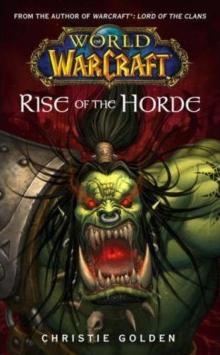 Rise of the Horde
Rise of the Horde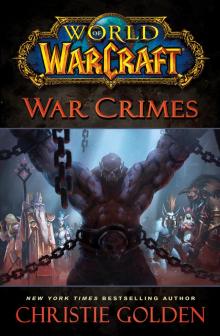 World of Warcraft: War Crimes
World of Warcraft: War Crimes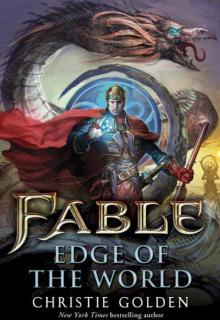 Fable: Edge of the World
Fable: Edge of the World Homecoming
Homecoming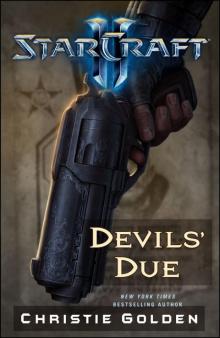 StarCraft II: Devil's Due
StarCraft II: Devil's Due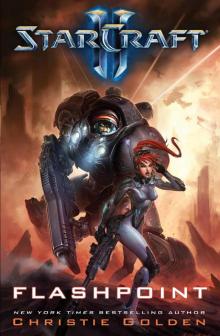 Starcraft II: Flashpoint
Starcraft II: Flashpoint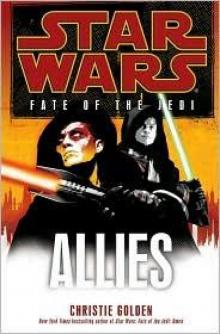 Allies
Allies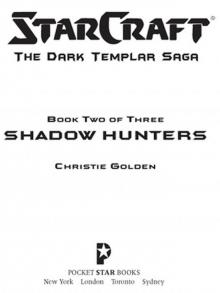 Shadow Hunters
Shadow Hunters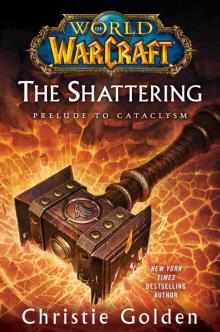 The Shattering: Prelude to Cataclysm wowct-1
The Shattering: Prelude to Cataclysm wowct-1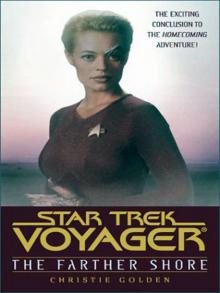 STAR TREK: VOY - Homecoming, Book Two - The Farther Shore
STAR TREK: VOY - Homecoming, Book Two - The Farther Shore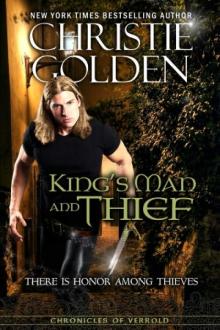 King's Man and Thief
King's Man and Thief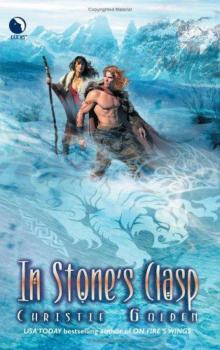 In Stone's Clasp
In Stone's Clasp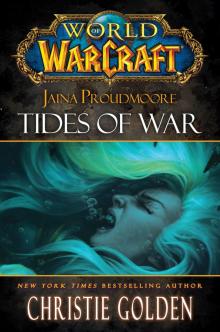 Jaina Proudmoore: Tides of War
Jaina Proudmoore: Tides of War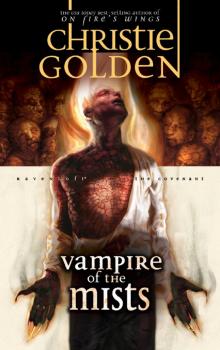 Vampire of the Mists
Vampire of the Mists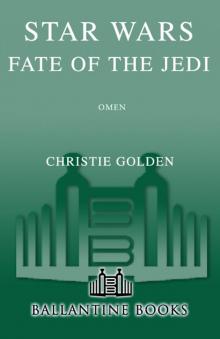 Star Wars: Fate of the Jedi II: Omen
Star Wars: Fate of the Jedi II: Omen King's man and thief cov-2
King's man and thief cov-2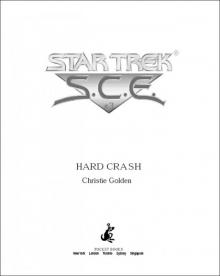 Star Trek
Star Trek StarCraft: Dark Templar: Twilight
StarCraft: Dark Templar: Twilight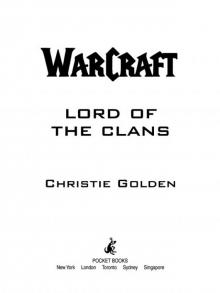 Lord Of The Clans
Lord Of The Clans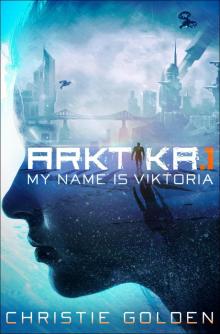 ARKTIKA.1 (Short Story)
ARKTIKA.1 (Short Story)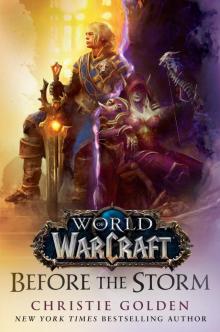 Before the Storm
Before the Storm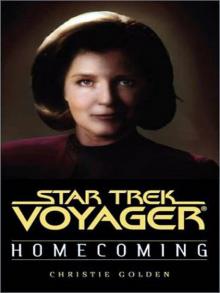 STAR TREK: VOY - Homecoming, Book One
STAR TREK: VOY - Homecoming, Book One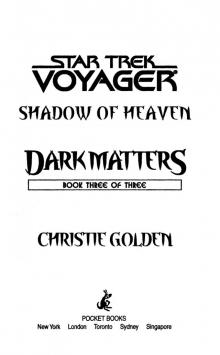 Shadow of Heaven
Shadow of Heaven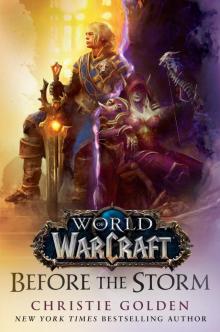 Before the Storm (World of Warcraft)
Before the Storm (World of Warcraft)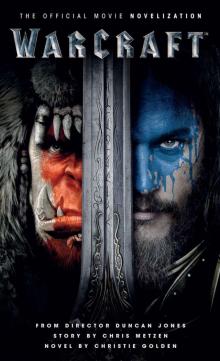 Warcraft Official Movie Novelization
Warcraft Official Movie Novelization Flashpoint
Flashpoint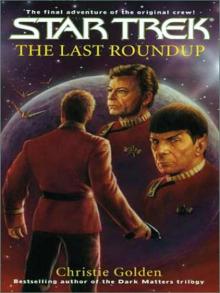 STAR TREK: The Original Series - The Last Roundup
STAR TREK: The Original Series - The Last Roundup On Fire’s Wings
On Fire’s Wings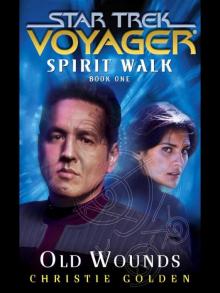 Spirit Walk, Book One
Spirit Walk, Book One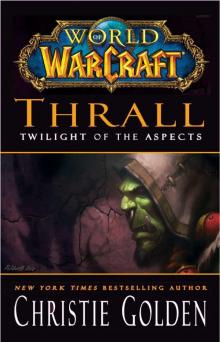 Thrall Twilight of the Aspects
Thrall Twilight of the Aspects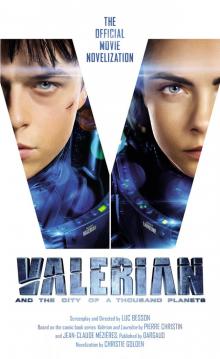 Valerian and the City of a Thousand Planets
Valerian and the City of a Thousand Planets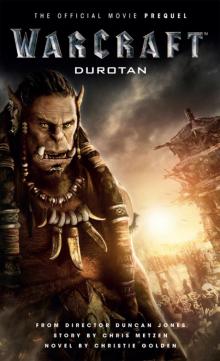 Warcraft
Warcraft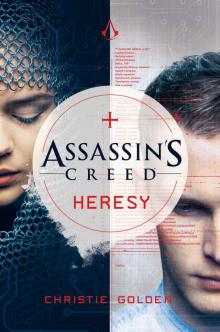 Assassin's Creed: Heresy
Assassin's Creed: Heresy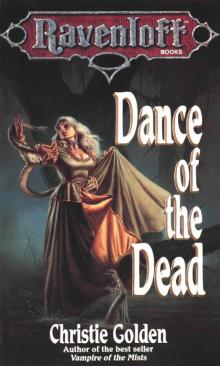 Dance of the Dead
Dance of the Dead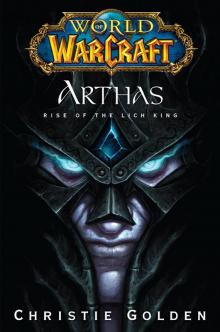 Arthas: Rise of the Lich King wow-6
Arthas: Rise of the Lich King wow-6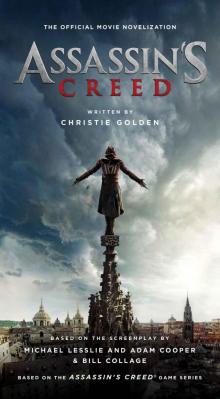 Assassin's Creed: The Official Movie Novelization
Assassin's Creed: The Official Movie Novelization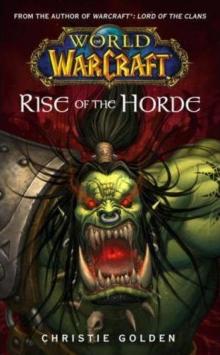 Rise of the Horde wow-2
Rise of the Horde wow-2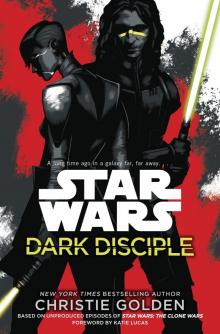 Dark Disciple
Dark Disciple Ghost Dance
Ghost Dance The Shattering
The Shattering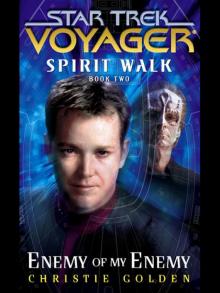 Spirit Walk, Book Two
Spirit Walk, Book Two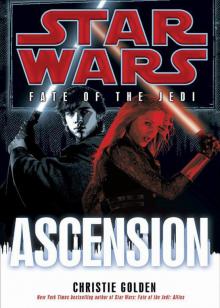 Star Wars: Fate of the Jedi: Ascension
Star Wars: Fate of the Jedi: Ascension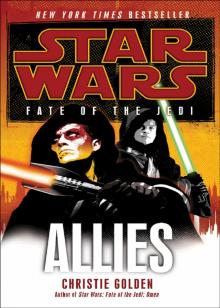 Star Wars: Fate of the Jedi V: Allies
Star Wars: Fate of the Jedi V: Allies The Enemy Within
The Enemy Within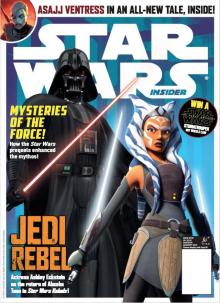 Kindred Spirits
Kindred Spirits The Farther Shore
The Farther Shore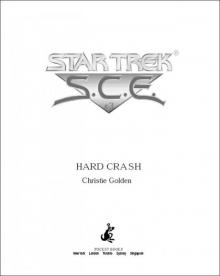 Star Trek: Hard Crash (Star Trek: Starfleet Corps of Engineers Book 3)
Star Trek: Hard Crash (Star Trek: Starfleet Corps of Engineers Book 3) Twilight
Twilight